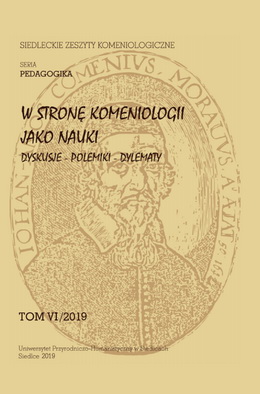Pedagogical work of John Amos Comenius as an inspiration for modern pedagogy: didactic-methodological approach
Keywords:
John Amos Comenius, pedagogy, didactics, methodology of pedagogyAbstract
John Amos Comenius belongs to the most important thinkers in European theology, philosophy, and pedagogy. His thoughts and ideas, contained in numerous works, over the cen-turies have been the subject of research and study by authors all over the world and have been the basis for the development of pedagogy as a science, as well as many modern understandings about education. We especially emphasize pedagogical work Great Didactic (lat Didaktica magna) as his most significant and famous work, where is presented the whole educational system and organization of teaching, which many parts are still applied today. The most previ-ous authors who deal with analyzing the Comenius thought, in his works mentioned comeniolo-gy, but as a phenomenon, he doesn't have clearly definition and content. Today, scientists tend to point out the need for the existence of comeniology as a science. The aim of this paper is to ana-lyze the pedagogical thoughts and ideas of John Amos Comenius from the aspect of applying his original ideas in contemporary didactics and methodology of pedagogy. For the purpose of this study, we used the method of theoretical analysis and the historical method with the technique of analyzing the content of available pedagogical sources. The content of this paper leads us to emphasize the significant influence of Comenius on developing and the existence of methodolo-gy of pedagogy and to point out the methodology of pedagogy as a possible subject area of the comeniology as a science.




